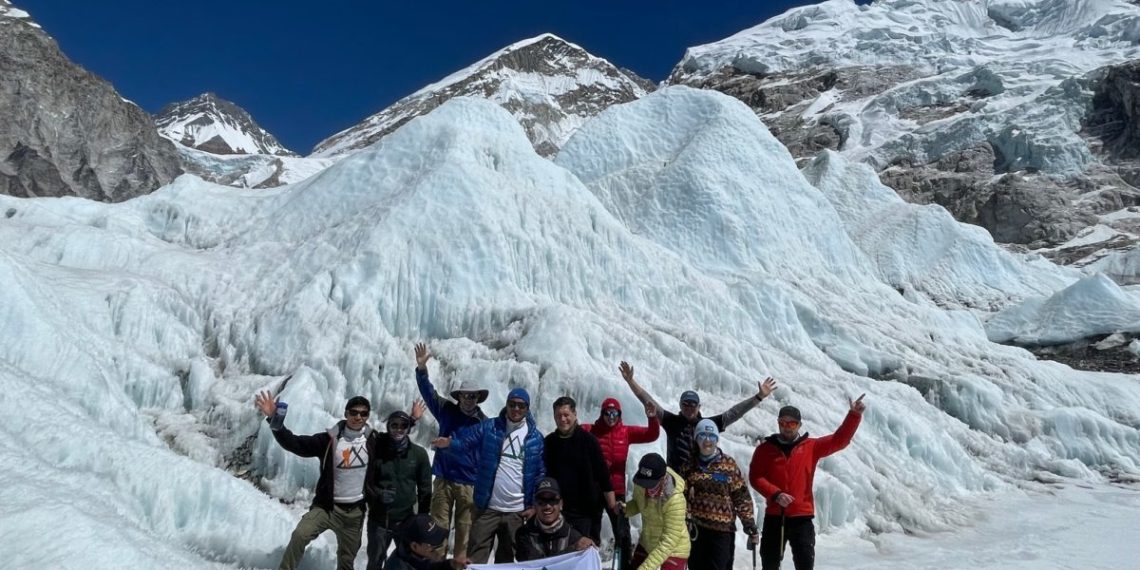The trekking journey to the majestic Everest base camp is a dream for every trekker. But there are many things to avoid during the Everest Base Camp trek.
The trek is one of the iconic adventures on the majestic Everest. Even for a seasoned trekker, the trekking route is quite hard.
But those breathtaking views, exhilarating challenges, and unforgettable experiences make this trek worth the effort.
Let’s save time and dive into five things to avoid during the Everest base camp trek.
Table of Contents
How to prepare for the trek?
Preparing for the trek to Everest base camp involves three key aspects: physical fitness, packing essentials, and acclimatization. Firstly, make sure you’re physically fit by doing regular exercise like walking and strength training.
Secondly, pack smartly with hiking boots, warm clothes, sunscreen, and a first aid kit, but avoid overpacking. Lastly, take it slow to adjust to the high altitude by spending a few days at higher elevations before reaching Everest Base Camp.
5 Things to Avoid During the Everest Base Camp Trek
The trek to Everest Base Camp is quite exhilarating. Now you know how to prepare for the trek.
Let us dive into five things to avoid the Everest base camp trek.
Overexertion
Overexertion is a big concern during the Everest Base Camp Trek. It’s important to pace yourself and not push too hard too soon. When you maintain a steady pace, it helps your body adjust to the altitude.
Besides, it lowers the risk of altitude sickness and feeling exhausted. Rushing the trek can lead to burnout and make the experience less enjoyable. You pace yourself wisely and have a more enjoyable time taking in the stunning views of the Himalayas.
Avoiding trekking regulations
Ignoring trekking regulations can lead to problems during the Everest Base Camp Trek. As the off-trail causes accidents, unwanted waste disposal can harm the environment. The rules are there for the safety of the trekkers and the preservation of the surroundings.
You should follow the trail and do proper waste disposal. Carry out all their waste and dispose of it responsibly in designated areas. When you obey these rules, it helps to preserve this incredible trekking route for everyone to enjoy safely and sustainably in the future.
Underestimating the weather condition
Never underestimate the weather conditions at the Everest base camp. It’s necessary to prepare for unpredictable weather with appropriate clothing and gear. Additionally, you must maintain flexibility with your itinerary in response to changing weather patterns.
Sudden storms or extreme conditions can impact trekking plans. So the trekking itinerary should be adaptable for safety. Staying informed about weather forecasts and being willing to modify your schedule as needed helps deal with unwanted weather conditions.
Not getting a guide
Not hiring a local guide or porter for the Everest Base Camp Trek can be risky. The local guides are quite familiar with the area. They have years of expertise in trekking and help keep you safe. Especially Everest is known for the generous Sherpa people as your guides or porters.
Porters also help by carrying your stuff, so you don’t get too tired. As you hire them, it helps to reduce the problem during the trek.
And the best part? It supports the local community. So, it’s a good idea to have a guide or porter with you for a safer and more fun journey.
Ignoring the symptoms of altitude sickness
Altitude sickness is the major problem after you pass the height of 3000m. But sometimes people tend to ignore the symptoms of altitude sickness during the trek.
Symptoms like headaches, nausea, and dizziness indicate the onset of altitude sickness. It is necessary to seek medical attention if you or someone in your group experiences any symptoms.
Getting help early can prevent serious complications and ensure a safer trekking experience. Don’t ignore the signs; listen to your body and take action to stay healthy.
Being Disrespectful Towards Local Customs
When you visit a certain location, it is obvious that disrespecting their customs can be a huge no. However, people are not aware of the culture of this remote area, which can lead to disregarding local customs.
It’s important to respect religious sites along the trail by following any rules or customs, such as removing hats or shoes before entering. Additionally, you should interact with locals to be respectful.
Plus, the people of the region are very welcoming and polite. It means being polite, asking permission before taking photos, and learning a few basic greetings in the local language.
Conclusion
It is exciting to start on the journey of the Everest Base Camp Trek, as it offers incredible adventure opportunities. But it’s crucial to proceed with caution and respect.
Practice responsible trekking habits and immerse yourself in the rich cultural and natural heritage of the region. This way, adventurers can create lasting memories and help to preserve the landmark for future generations.
Related Content: Trekking Destination in Nepal

